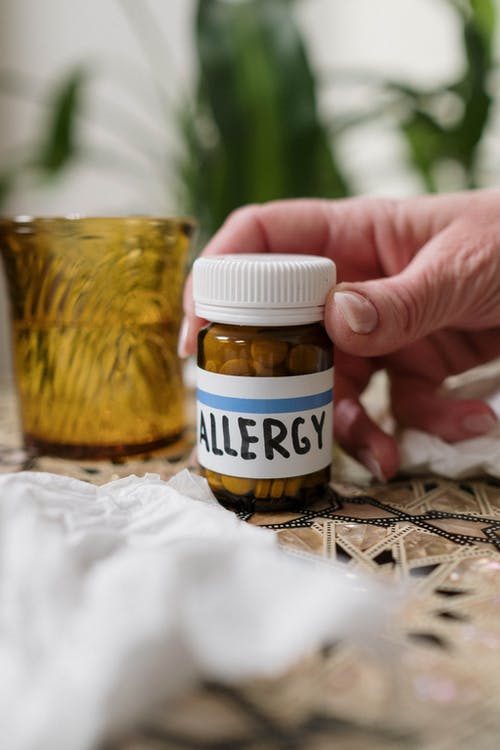What’s the link between mental Health and Allergies?
Allergic diseases
Allergy stands alone in the huge list of diseases that are equally dangerous for adults and children.
We are accustomed to treating this phenomenon philosophically: an allergy appears to appear from nowhere, it can “attack” a person at any age, torment him for some time and just as suddenly disappear. Or not disappear, but stay for the rest of your life.
Without knowing the cause of allergies, we are not engaged in prevention.
The usual rules do not work in this case. In other situations, everything is quite simple: if you want to protect yourself from a cold – dress warmer, you do not want your stomach to hurt – eat healthy food.
But How could we prevent this strange and mysterious allergy? Can it be cured?
Among the allergic diseases considered were asthma, atopic dermatitis and hay fever. Previously, the relationship between these ailments and mental disorders was unclear.
However, scientists have noted that people with allergic diseases are more prone to depression, anxiety, bipolar disorder, and neuroticism.

In this article, We tried to consider one of the main causes of allergies.
The terminology Of Mental Health
Before proceeding with the actual allergies, a few words should be said about the group of diseases that are called mental.
Mind disorders are disorders that arise as a result of a complex interaction between the mind and the body and result in precisely the somatic, i.e. bodily trouble.
This term has been known since the beginning of the last century, and even a group of such diseases was previously distinguished, which included ischemic heart disease, gastric ulcer and duodenal ulcer, bronchial asthma, psoriasis, etc.
If we talk about allergies, then this is precisely the displaced reaction of the psyche, which ceases to cope with stress and develops into distress.
It should be clarified that stress is something that each of us faces, they (stress) are normally present in our life and even force us to develop internally.
However, in the event that our psyche, for some reason, is not able to resist them, then distress arises – a special stress of the psyche, which can lead to various kinds of mental reactions. But that’s not all.
Mental Health and Allergies from the Past
The first scientist who was seriously carried away by this branch of psychotherapy was the well-known Sigmund Freud.
He and his followers began to study the connection between the psyche and bodily manifestations, they identified and named several diseases that, in their opinion, arise mainly “on nerves”: ischemic heart disease, bronchial asthma, ulcerative colitis, etc.
Freud believed (and modern scientists agree with him) that mental problems affect physical health.
Here it is necessary to insert an important clarification: the word “psychosomatic” does not negate the somatic component.
The psyche can only start the process of the development of the disease, which, as it develops, will eventually reach the somatic level and firmly gain a foothold there.
Such a disease cannot be cured by psychotherapy alone; it is necessary to involve specialists in other fields.

British evidence of Mental Health and Allergies
British scientists, after analyzing data from the British biobank, confirmed the opinion existing in science that the manifestations of allergies are often accompanied by mental disorders.
However, the mathematical processing of the results of genetic analyzes, produced by the method of Mendelian randomization, did not reveal a causal relationship between these two groups of diseases.
The article is published in the journal Clinical and Experimental Allergy of the British Society of Allergy and Clinical Immunology.
Previous studies have shown an observable link between mental health and common allergic conditions such as asthma, atopic dermatitis and hay fever, but the nature of this link remains unclear.
In addition, some scientists have noted that people with allergic diseases are generally more prone to depression, anxiety, bipolar disorder and neuroticism, but this does not mean that mental disorders are caused by allergies, or vice versa.
It turned out that strong associations between allergies and mental disorders do exist. However, the researchers also noted that they are not traced in a special causal analysis, that is, none of the groups of diseases plays a significant role in the occurrence of the other.
Depression as a Mental Health and Allergies. German Scientists’ Evidence
Depressed people react to animal fur, and people with anxiety disorder react to pollen.
German scientists have released the results of their research on the relationship between psychological health and allergies.
It turns out that seasonal allergic reactions are more common in people with anxiety disorder, and those with depression are more likely to have year-round allergies.
More than 1,700 residents of Augsburg took part in the study by scientists at the Technical University of Munich.
Participants had to answer the question whether they suffer from any form of allergy: seasonal (for example, to pollen of plants), year-round (to house dust or animal dander) or allergies to other substances (food, medicine).
In addition, survey participants spoke about their psychological health, focusing on depression, generalized anxiety disorder and acute mental stress.
About a quarter of respondents (27.4%) said they suffer from allergies: 7.7% reported year-round, 6.1% seasonal, and 13.6% other forms of allergic reactions. At the same time, a clear correlation was found between different types of mental disorders and different types of allergies.
It turned out that people with generalized anxiety disorder – a state of mind in which a person experiences a constant, unreasonable feeling of anxiety – in the vast majority of cases suffer from seasonal allergies caused by plant blooms.
But participants diagnosed with depression are characterized by year-round forms of allergy: to domestic ticks, animal hair.
At the same time, which surprised the scientists, the connection between food and medicine allergies and psychological factors was not found at all.
The study of causal relationships was not the purpose of the study, therefore, it remains to be guessed that it is primarily a mental disorder or an allergic reaction.
Do allergies increase the propensity for depression, or is depression itself a risk factor for allergies?

And could it be that people with persistent allergies develop strategies for coping with stress that protect them from anxiety disorders (but cannot protect them from depression)? This remains to be seen.
The general scheme of Mental Health and Allergies
The general scheme looks like this:
Traumatic situation + neuropsychic reaction + allergen = allergic reaction
A single allergic reaction is not too dangerous. But as soon as it gains a foothold in the psyche, it becomes permanent.
Therapists call people prone to psychosomatic reactions “alexithymic”: it is difficult for them to recognize their own feelings and it is difficult to talk about them. Often they themselves cannot understand what is happening to them. As a result, all emotional states experienced in stressful situations enter the body in a tight ball.
Usually we cope with stress: nature provides a mechanism for protection from such misfortunes in the body. But if the stress is too strong, and it is impossible to cope with it, the so-called distress arises – a very powerful experience, grief.
Excessive stress of the psyche must somehow break through, find a way out – and this “way out” turns into either phobias and depressions, or opens directly into the body and is realized at the level of somatic health. For example, due to severe and constant stress, a person may develop stomach ulcers.
Mental Health and Allergies Final Words
There is such a method of psychological protection as repression, when a person ignores what is happening to him, drives negative experience from memory and thoughts, does not live it and does not draw conclusions.
Then this experience also passes to the body, while the most vulnerable, weakest link in the body breaks. Allergies are one of the common weaknesses.
There is no uniform portrait of an allergic person, although it can be assumed that this person is anxious, internally worried, alexithymia, that is, with difficulty recognizing and describing his feelings and emotions.
